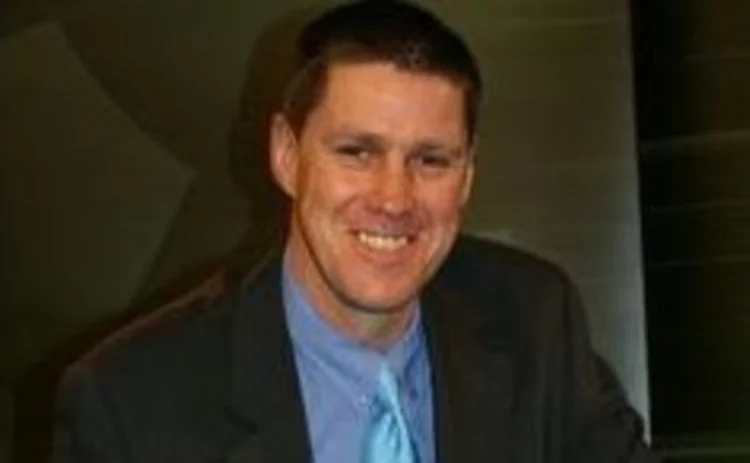May 2012: Ode to Experience

When I read Anthony Malakian’s cover story this month on Sands Capital Management’s Ryan Bateman, it immediately took me back to a time, some 25 years ago, when I firmly believed that hard work and commitment could more than compensate for a lack of experience. That is not an uncommon perspective, coming from a callow 20-year-old male, full of testosterone, attitude and dreams of immortality.
Back then, the cycling bug had bitten me, to the extent that my entire existence was pretty much intertwined with cycling: I managed a bike shop, I raced whenever I could, and when I wasn’t racing or working, I was training, eating or sleeping—and dreaming of immortality.
My training partner and I would often encounter ex-pros—cyclists in their early 40s who had, in the past, been paid to ride a bike every day of their lives, but who now rode purely for pleasure. Anyone who has cycled competitively will acknowledge the ever-present, seminal role played by one’s ego, where, for example, “shelling” riders on a hill or “putting them in the gutter” in a strong cross wind, is particularly pleasurable. During our regular meetings with ex-pros, we would do whatever it took to show them that they were well and truly past it and that now the young bucks ruled the roads.
Needless to say, it wasn’t long before we were disabused of that notion, but that didn’t stop us from trying to demonstrate our superiority at every opportunity. It was a case of million-dollar bodies and five-cent brains—ex-professionals, it turns out, are wily old foxes, who have learned to suffer on a bike. So too had they learned when to ride hard and when to sit up; they seemed to know intuitively when to let a break go up the road and when to pull it back; and they knew how to hide in a bunch and save their energy.
Experience, like that illustrated by battle-hardened ex-professional cyclists, is a hugely valuable commodity in every walk of life. The technology realm of the capital markets industry is no different, especially when it comes to determining returns on investments—one such challenge that Sands Capital’s Bates is currently grappling with. Top CIO aren’t necessarily those who work the longest hours or are the most committed to the firm’s cause; they’re the ones who instinctively and consistently make the right decisions with respect to planning and managing technology and operational projects. And it is this uncanny ability to make the right decision at the right times, molded to a large degree by experience, that makes calculating positive returns on investments possible, a prerequisite for any top CIO.
Only users who have a paid subscription or are part of a corporate subscription are able to print or copy content.
To access these options, along with all other subscription benefits, please contact info@waterstechnology.com or view our subscription options here: http://subscriptions.waterstechnology.com/subscribe
You are currently unable to print this content. Please contact info@waterstechnology.com to find out more.
You are currently unable to copy this content. Please contact info@waterstechnology.com to find out more.
Copyright Infopro Digital Limited. All rights reserved.
As outlined in our terms and conditions, https://www.infopro-digital.com/terms-and-conditions/subscriptions/ (point 2.4), printing is limited to a single copy.
If you would like to purchase additional rights please email info@waterstechnology.com
Copyright Infopro Digital Limited. All rights reserved.
You may share this content using our article tools. As outlined in our terms and conditions, https://www.infopro-digital.com/terms-and-conditions/subscriptions/ (clause 2.4), an Authorised User may only make one copy of the materials for their own personal use. You must also comply with the restrictions in clause 2.5.
If you would like to purchase additional rights please email info@waterstechnology.com
More on Emerging Technologies
Bloomberg rolls out GenAI-powered Document Insights
The data giant’s newest generative AI tool allows analysts to query documents using a natural-language interface.
Tape bids, algorithmic trading, tariffs fallout and more
The Waters Cooler: Bloomberg integrates events data, SimCorp and TSImagine help out asset managers, and Big xyt makes good on its consolidated tape bid in this week’s news roundup.
DeepSeek success spurs banks to consider do-it-yourself AI
Chinese LLM resets price tag for in-house systems—and could also nudge banks towards open-source models.
Standard Chartered goes from spectator to player in digital asset game
The bank’s digital assets custody offering is underpinned by an open API and modular infrastructure, allowing it to potentially add a secondary back-end system provider.
Saugata Saha pilots S&P’s way through data interoperability, AI
Saha, who was named president of S&P Global Market Intelligence last year, details how the company is looking at enterprise data and the success of its early investments in AI.
Data partnerships, outsourced trading, developer wins, Studio Ghibli, and more
The Waters Cooler: CME and Google Cloud reach second base, Visible Alpha settles in at S&P, and another overnight trading venue is approved in this week’s news round-up.
Are we really moving on from GenAI already?
Waters Wrap: Agentic AI is becoming an increasingly hot topic, but Anthony says that shouldn’t come at the expense of generative AI.
Cloud infrastructure’s role in agentic AI
The financial services industry’s AI-driven future will require even greater reliance on cloud. A well-architected framework is key, write IBM’s Gautam Kumar and Raja Basu.








